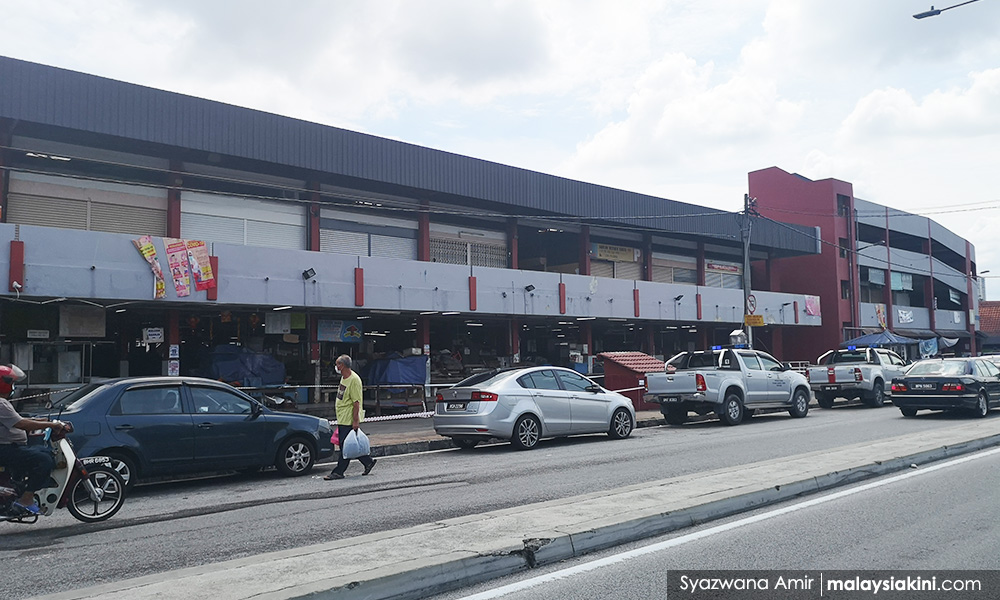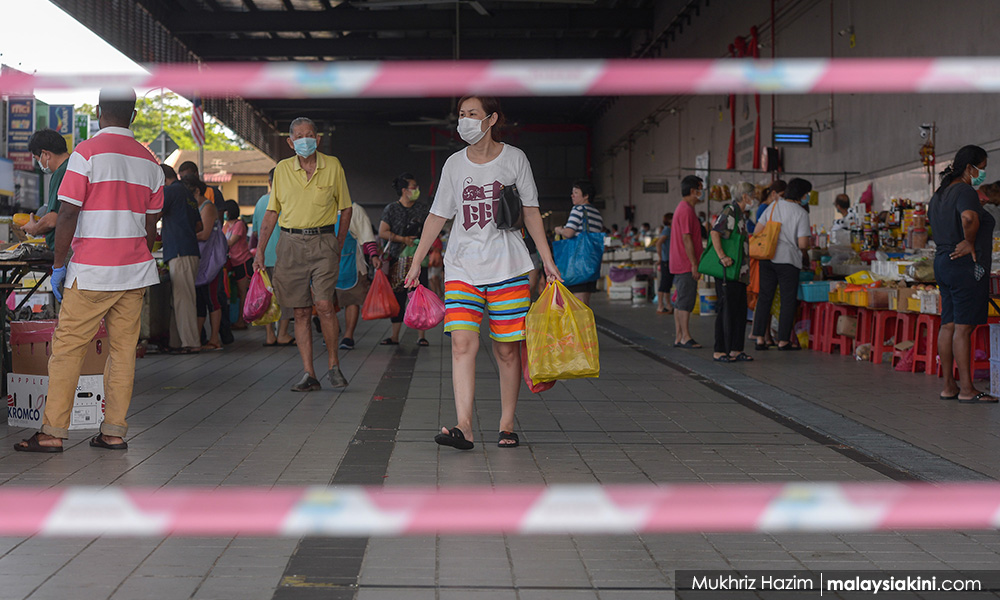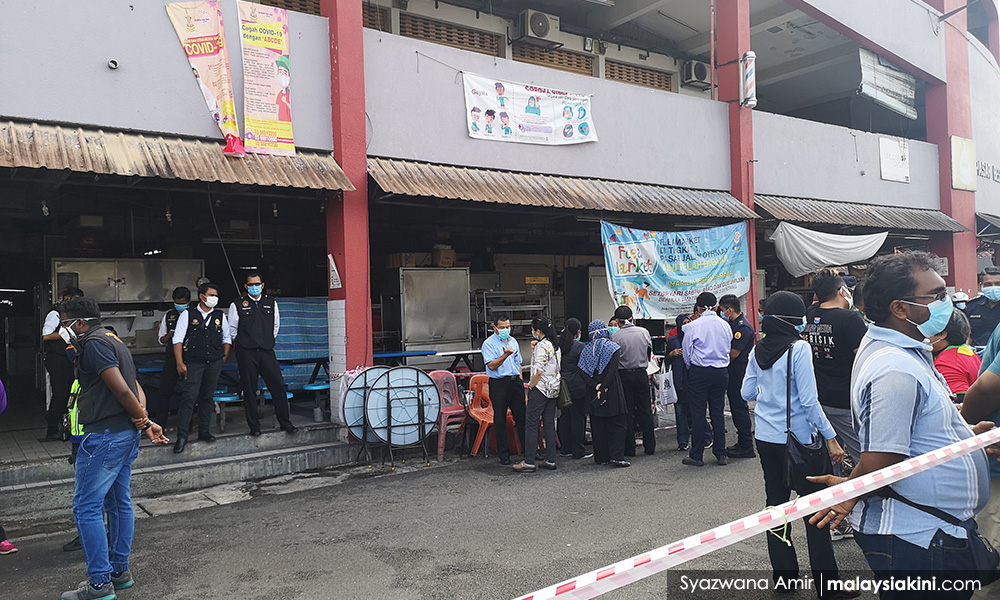
Kamal, from Bangladesh, is worried. His rent was due weeks ago, but because of the movement control order (MCO) in Malaysia, he could not work to earn money to pay for his rent or food.
As much as he hated to do it, desperation drove Kamal to call his father in Bangladesh to ask if the 73-year-old could send him money. Fortunately, his father said yes and he was able to make do.
This situation is the opposite of what Kamal expected when he boarded a plane to Malaysia 15 years ago. Since 2005, the 40-year old has been working legally at a stall selling fresh coconut milk at the Petaling Jaya Old Town wet market. He usually makes RM60 daily, which comes up to about RM1,800 monthly if he works every day.
He would keep about RM800 to pay for necessities and send the rest to his parents, wife, and two children back home, which was enough to pay for their needs with a little set aside for a rainy day. However, now, their roles are reversed.
Furloughed during the MCO since March 18, Kamal and other workers like him, mostly from Bangladesh, have lost the opportunity to earn. Their ordeal is far from over as they will not be able to work even after the wet market reopens.
In May, traders at the wet market received notice not to hire any foreigners, even those with valid permits. Anyone found in violation of the order will have their licence revoked.

The father of two stood in the common area of the dilapidated 13-room wooden house on Jalan Othman, Petaling Jaya which he shares with 17 others, most of them foreigners. Close by, the sound of incessant hammering and drilling could be heard as construction workers readied the wet market building for re-opening.
Kamal is not alone. Other migrant workers at the market told Bernama they too had to ask their family and friends back home for aid. Malaysians have also chipped in, donating food and other necessities to help supplement what the migrants got from their families.
“My family had to borrow the money they sent me,” (Keluarga pinjam duit hantar sini) said Nuraalam, a 28-year old migrant worker from Bangladesh.
Covid-19 market cluster
Their woes began on April 24 when a trader at the Old Town market, who brought supplies from the Selayang wet market, tested positive for Covid-19. On May 5, Health director-general Dr Noor Hisham Abdullah reported a spread of Covid-19 cases among traders, distributors, and workers in four wet markets with the "market cluster" originating from Selayang. Two markets, including the Old Town market, were later placed under an enhanced MCO.
Petaling Jaya City Council (MBPJ) councillor Ermeemariana Saadon said they decided to enforce existing by-laws (Undang-undang Kecil Penjaja 2007 MBPJ) and bar foreigners from working at markets after the Covid-19 outbreaks. Migrant workers are considered high-risk as they typically live in cramped conditions with many fitting into one room to save money on rent.

When asked why MBPJ did not enforce these laws previously, her reply was: “This is the lesson learned from Covid-19 (Inilah hikmah Covid-19).” She added the decision to enforce the by-laws now was not done with malice, instead she blamed the traders for not understanding the conditions under which foreign workers could be employed.
With rising unemployment among locals, government officials stated their preference for Malaysians to work in wet markets. The latest report from the Department of Statistics Malaysia (DoSM) pegged the unemployment rate among Malaysians at five percent.
At a press conference on June 22, Human Resources Minister M Saravanan said the government froze the intake of new foreign workers in all sectors until the end of the year to reduce the country’s reliance on foreign labor. He did not address how this will affect documented workers, like Kamal, who were already in the country but barred from working.
Nevertheless, the migrants hope the ban will be lifted for them to be able to go back to work. However, the situation is unlikely to change as long as there is no Covid-19 vaccine and the economic slowdown continues. When asked what they would do when their permits expire in a few months’ time, most said they were prepared to leave.
“I still want to remain in Malaysia as I want to earn a living,” said Sharif, Kamal’s co-worker. “However, if Malaysia does not want me, I will go back,” he added.
It will likely be a few more months before he can do that, however. Neither worker nor employer is likely to end the contract prematurely without notice because both parties would have to pay a penalty, in accordance with the Employment Act of 1955.
Help needed for foreign workers
In the meantime, workers would still need funds and supplies in the ensuing months, said Sumitha Shaanthinni Krishna, director of migrant rights’ group Our Journey. “If the authorities are still going to keep the sector closed to foreign workers, the only way to rectify it is to let them find another employer. Otherwise, how do you expect them to survive?” she said.
Although she acknowledged things were hard for Malaysians, she said it was worse for foreign workers as they can only work with that particular employer, unlike locals who could easily switch to other employers. In this regard, Petaling Jaya MP Maria Chin Abdullah, called on the government to allow migrant workers to change their sectors and employers without penalty.

Bernama reached out to the Home and Human Resource ministers for comment but to no avail.
Coconut stall owner Mohd Azha Hussein, who is Kamal’s employer, does not want to say goodbye to his foreign employees, whom he has known for more than 10 years. However, if MBPJ does not relent, he would have to find Malaysians to replace Kamal and his coworkers.
“My sons have local friends who are not working and they can help. The only problem is they have to wake up (early) in the morning,” he said, adding that processing coconuts begins at 4am and ends at 12pm daily.
He is willing to pay each worker RM2,400 with benefits “if they do good work” but he is not sure if Malaysians are ready for this.
- Bernama



No comments:
Post a Comment
Note: Only a member of this blog may post a comment.